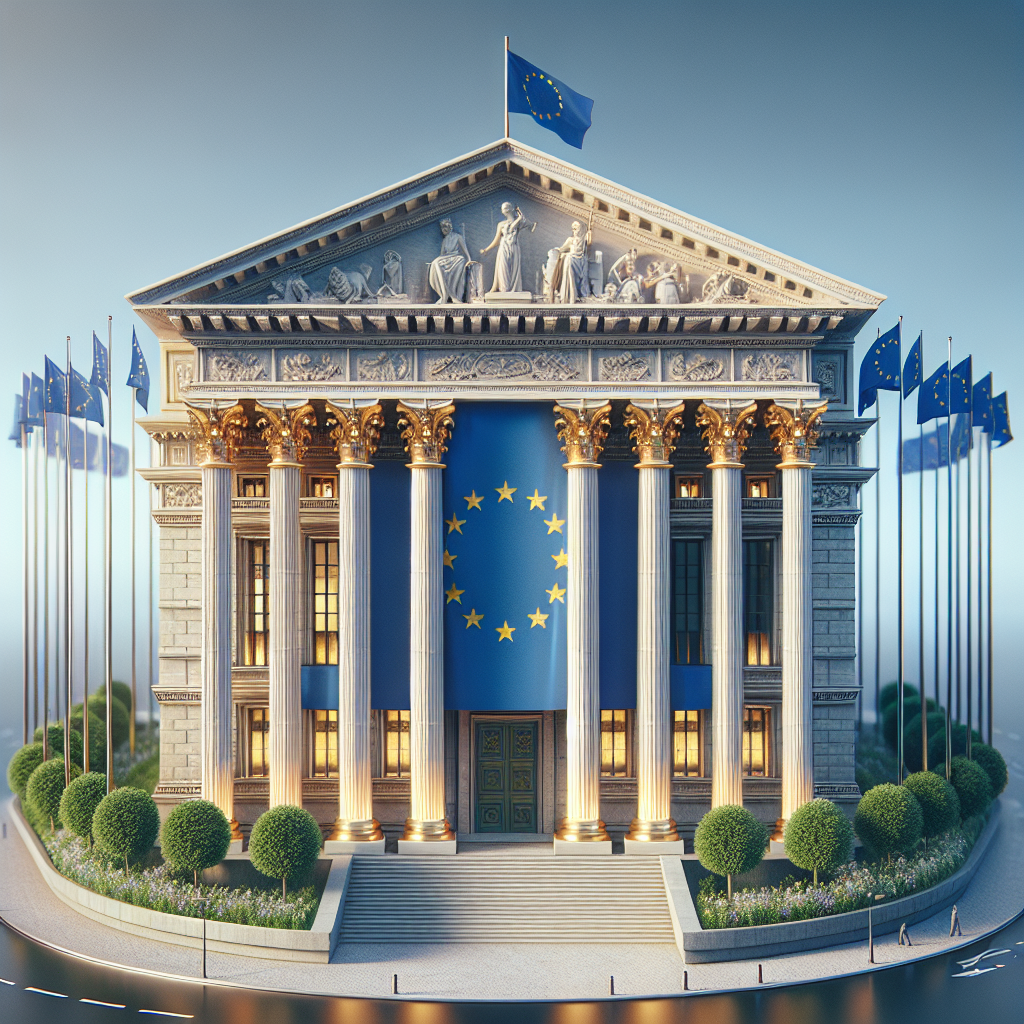EU Companies Show Resilience Amid Shocks, Boost Ambitions for Green and Digital Transformations: EIB Survey
EIB Chief Economist Debora Revoltella noted the progress being made, stating, “European firms are making strides in addressing both climate change and the digital transformation.”

A recent survey conducted by the European Investment Bank (EIB) reveals that companies within the European Union (EU) have shown remarkable resilience to the health, price, and trade shocks of the past four years. Released during the World Bank-IMF Annual Meetings, the EIB Investment Survey 2024 highlights a growing commitment among EU businesses to pursue green and digital transformations despite ongoing geopolitical risks and supply chain disruptions.
Growing Investment in Sustainability and Technology
The survey, which encompasses approximately 12,000 companies across all EU member states and a comparative sample from the United States, indicates that a majority of firms are content with their investment levels over the past three years. Notably, 61% of EU firms have invested in initiatives to combat climate change, reflecting a continuous upward trend from 56% in 2023 and 53% in 2022. This commitment not only illustrates the determination of EU businesses to address climate challenges but also their recognition of the green transition as an opportunity for growth; 27% of EU firms anticipate potential benefits from transitioning to a net-zero economy over the next five years.
EIB President Nadia Calviño emphasized this point, stating, “The commitment of EU firms to the green and digital transitions illustrates the potential of the European economy.” She underscored the importance of public-private partnerships in driving strategic investments essential for maintaining the EU's competitiveness and security in global markets.
Strategies and Challenges
Both EU and US firms have actively sought to reduce greenhouse gas emissions, with around 90% implementing measures such as investing in waste reduction, recycling, and energy efficiency. However, EU companies are reportedly more proactive than their US counterparts in adopting sustainable transport options and renewable energy generation. 34% of EU firms view the green transition as a business risk, a lower percentage than the 42% reported by US firms.
Investment patterns also reveal that 37% of total investments by EU businesses target intangible assets, such as research and innovation, illustrating a strategic focus on developing digital solutions. Notably, 74% of EU businesses utilize digital technologies, up 4% from last year, though this still trails the 81% reported by US firms.
Future Investment Priorities
Despite a strong focus on innovation, many EU companies are prioritizing replacement investments over expansion. Only 26% of EU firms plan to increase operational capacity in the next three years, significantly lower than the 47% of US firms with similar intentions. Calviño pointed out the necessity for continued support for EU innovation, announcing that the EIB Group is developing an Action Plan aimed at better integrating Europe's capital markets to channel private savings into productive investments.
Barriers to Investment and Market Fragmentation
Challenges remain for EU businesses, with concerns over a lack of skilled labour and future uncertainties persisting as key issues. High energy costs continue to impede investment for 46% of EU businesses. Additionally, 60% of EU exporters reported facing differing standards and consumer protection regulations across member states, signalling ongoing market fragmentation.
EIB Chief Economist Debora Revoltella noted the progress being made, stating, “European firms are making strides in addressing both climate change and the digital transformation.” However, she emphasized that enhancing investment within the EU requires a less fragmented single market.
Supply Chain Resilience in Geopolitical Landscape
The survey highlights the importance of robust supply chains, with concerns about trade disruptions easing since last year. Nonetheless, companies did not perceive any significant improvements in regulatory environments, tariffs, or trade restrictions. As geopolitical tensions rise, EU firms are proactively enhancing the resilience of their supply chains to safeguard economic security and efficiency.
The 2024 Investment Survey serves as a crucial resource for policymakers, economists, and business leaders, offering insights into the current investment landscape and identifying necessary actions to foster economic growth and resilience in an evolving global context.
- READ MORE ON:
- European Investment Bank
- Debora Revoltella
- European Union










